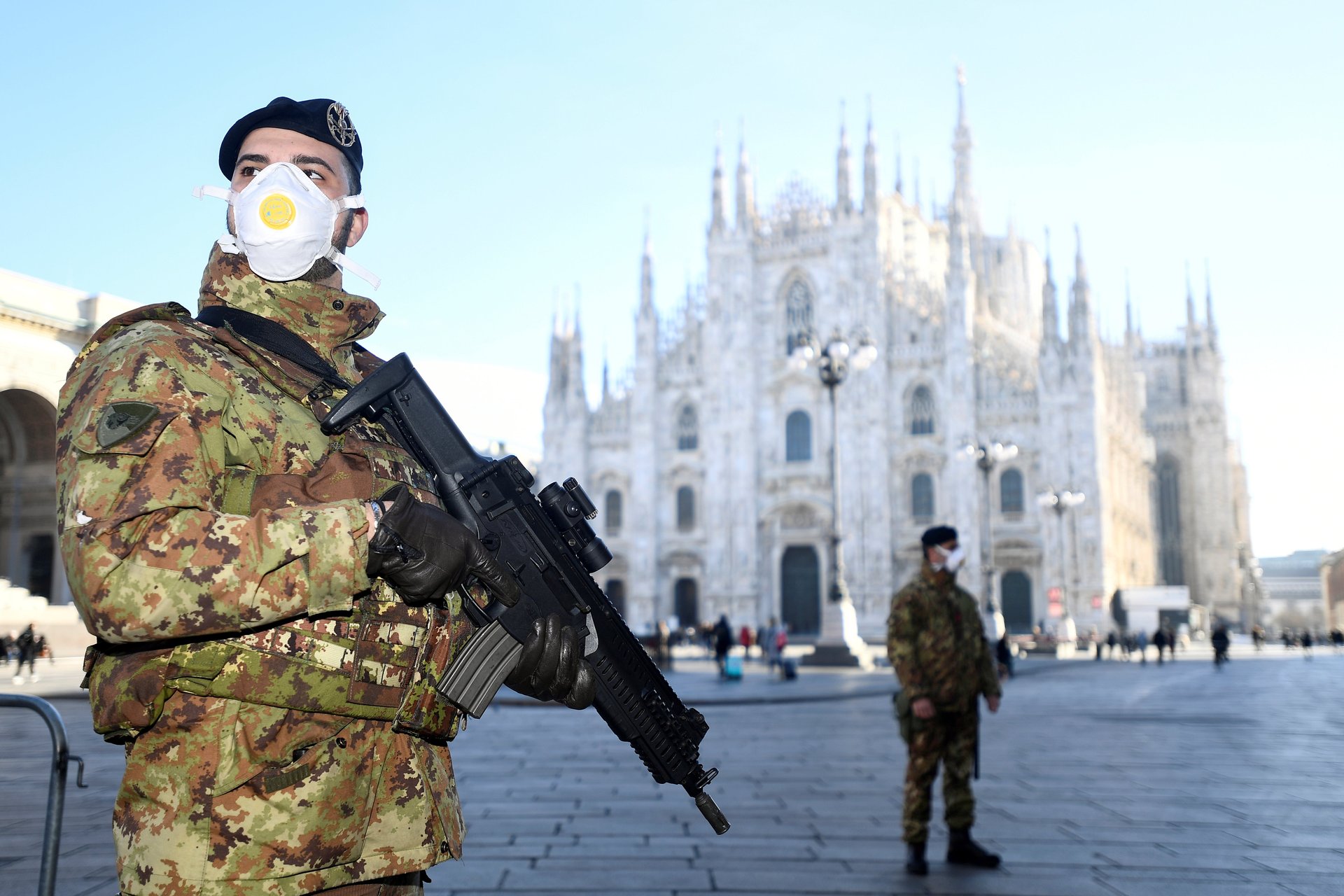Italy follows China’s lead on coronavirus containment
Up to 16 million people have been placed under quarantine in northern Italy, in a bid by the government to stop the march of coronavirus across Europe’s hardest-hit region.


Up to 16 million people have been placed under quarantine in northern Italy, in a bid by the government to stop the march of coronavirus across Europe’s hardest-hit region.
“For Lombardy and for the other northern provinces that I have listed, there will be a ban for everybody to move in and out of these territories and also within the same territory,” prime minister Giuseppe Conte said early Sunday morning. “Exceptions will be allowed only for proven professional needs, exceptional cases, and health issues.”
The decree marks the most extreme measures taken outside of China to contain the spread of the coronavirus, and will last until 3 April. The north is Italy’s economic powerhouse, with Lombardy alone responsible for 40% of industrial production. The move effectively shuts down a significant part of the economy in a bid to halt the fast-moving virus.
Italy has seen the largest number of coronavirus cases in Europe and reported a steep rise in infections on Saturday. According to Johns Hopkins, the number of confirmed cases jumped by more than 1,200 to 5,883 on Saturday, with 233 deaths.
The World Health Organization has applauded China’s strict containment measures. In a country where state control is paramount and monitoring of citizens already an integral part of life, scrupulous quarantine and testing measures have slowed the spread of the virus.
But Italy is no China.
Italians are better known for flouting rules than following them, some citizens said. “It will never work in Italy,” Paolo Imparato, a 26-year-old pizza maker, said of the ban to the New York Times last night. “People will run away, they will go around.”
Italy’s government is also weak, comprised of an uneasy and changing coalition which has at times fallen apart. It’s unclear whether a population fiercely protective of its individual liberties will listen to a government that itself has been unable to pass even basic laws. Already, the quarantine has resulted in travel chaos and raised the ire of local politicians.
While China’s measures have proven effective at slowing infection, experts say the outbreak could gain ground again as schools reopen and work resumes.
Mark Lowen, Rome correspondent for the BBC, questioned whether Italy’s dramatic move comes too late. “The government is now taking the most extensive containment measures outside of China. But is this a case of trying to shut the stable door after the horse has bolted?” he wrote.
Conte said the measures were necessary. “We want to guarantee the health of our citizens. We understand that these measures will impose sacrifices, sometimes small and sometimes very big,” he said Sunday.
Anyone living in Lombardy and at least a dozen other central and northern provinces will need special permission to travel. Milan and Venice, major Italian cities, are both included. Conte also announced the closure of gyms, museums, nightclubs and other venues across the whole country; this follows the closure of schools. Weddings and funerals will be suspended.
Italy’s economy shrank in the fourth quarter of 2019 and is forecast to shrink again this quarter, likely pushing the economy into recession.